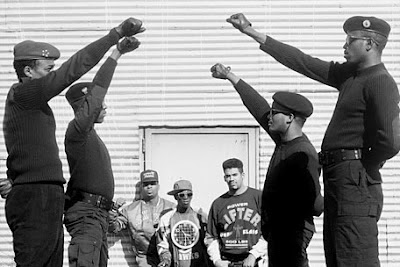
 Hip Hop's 40th Birthday
Hip Hop's 40th Birthday
RnB/Hip Hop | Monday 12th August 2013 | Mark
Hip Hop turns 40
August 11th 2013, marked the 40th birthday of hip hop. In 1973, Clive “Kool Herc” Cambell and sister Cindy Cambell, organized a house party in the basement of their residential building (Sedwick Avenue, South Bronx) in order to raise money for new clothes to return to school with. With the entertainment being handled by Kool Herc, Cindy hand-drew the event flyers and bought enough malt liquor, soda and beer to promote the party to residents local to the area.

These parties gained much notoriety around the city, as people from all around the five boroughs of New York would attend to hear Kool Herc perform his signature style “breaks”. Kool Herc inspired artists like Afrika Bambaataa, Grandmaster Flash, the Furious Five, the Treacherous Three, the Cold Crush Brothers, DJ Hollywood and Grand Wizzard Theodore to become the forefront of hip hop performers for that era, passing the torch of inspiration onto each new generation that followed.

The influence of hip hop has become so prominent that sub-genres have emerged within different regions of America, and even worldwide. These derivative forms of hip hop have been coined due to their respective twist of the genre, birthing artists with such diverse backgrounds that hip hop has now become universal. Not only has the music been an influence though, hip hop emcompasses various different elements like breakdancing, graffiting, beatboxing, emceeing, producing, DJing and even has it's own unique style of fashion which seems to change every decade or so.

Artists have been incorporating a vast array of subject matter through their music with songs like "The Message" by Grandmaster Flash & The Furious Five, which addressed socialpolitical issues that plagued them whilst growing up, "Express Yourself" by N.W.A which focuses on the liberation of the surpressed, creative spirit, and "Fight The Power" by Public Enemy which is a strong political statement against the inequity of civil rights amongst the African-American communities at that time.

Today, the (d)evolution of subject matter that has been commericialized is riddled with materialistic pursuits as opposed to the more liberal minds of those before us that had positive messages to convey. There are still those who are true to the art form, but you might have to dig a bit deeper than the radio to find them.
Mark Fort
